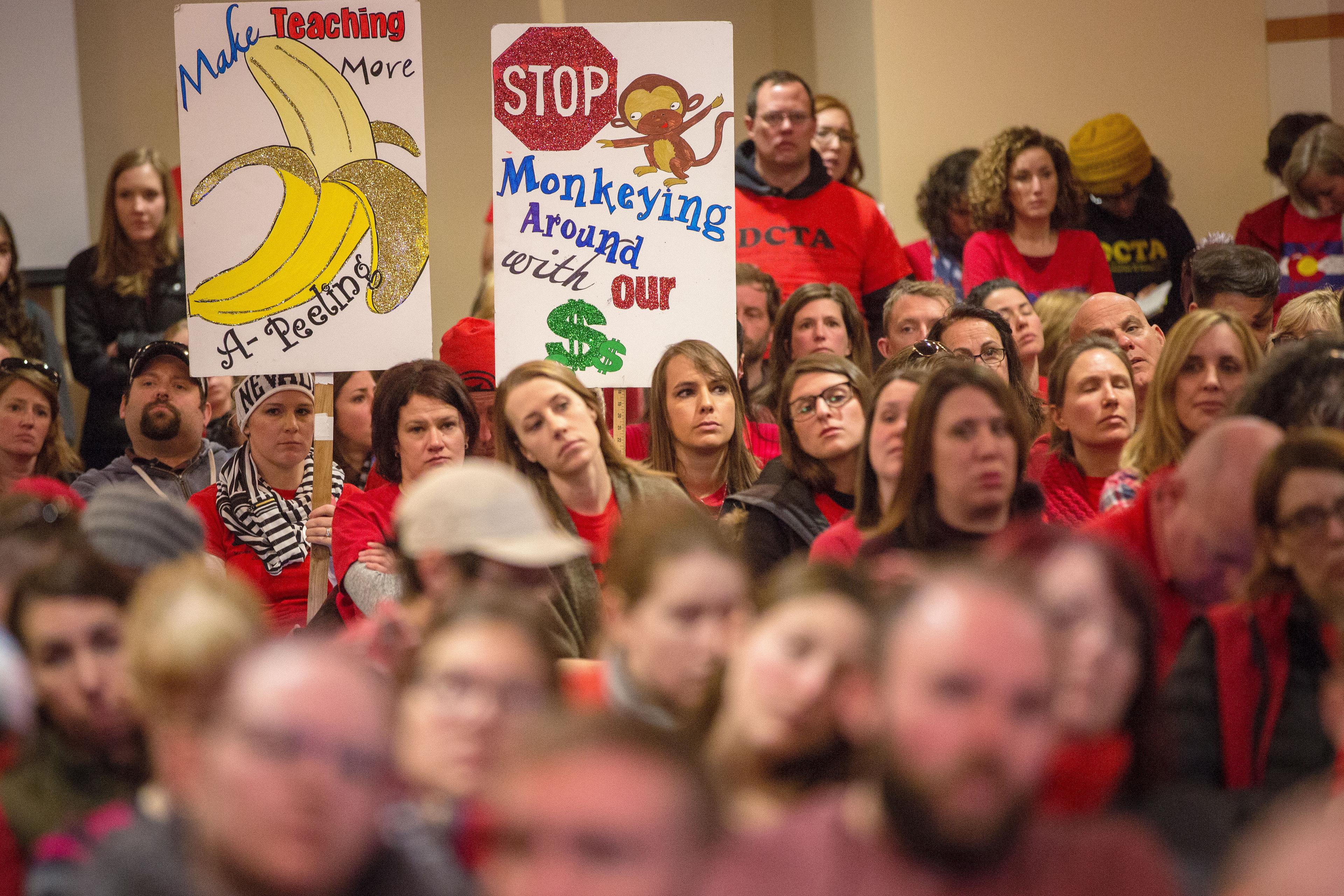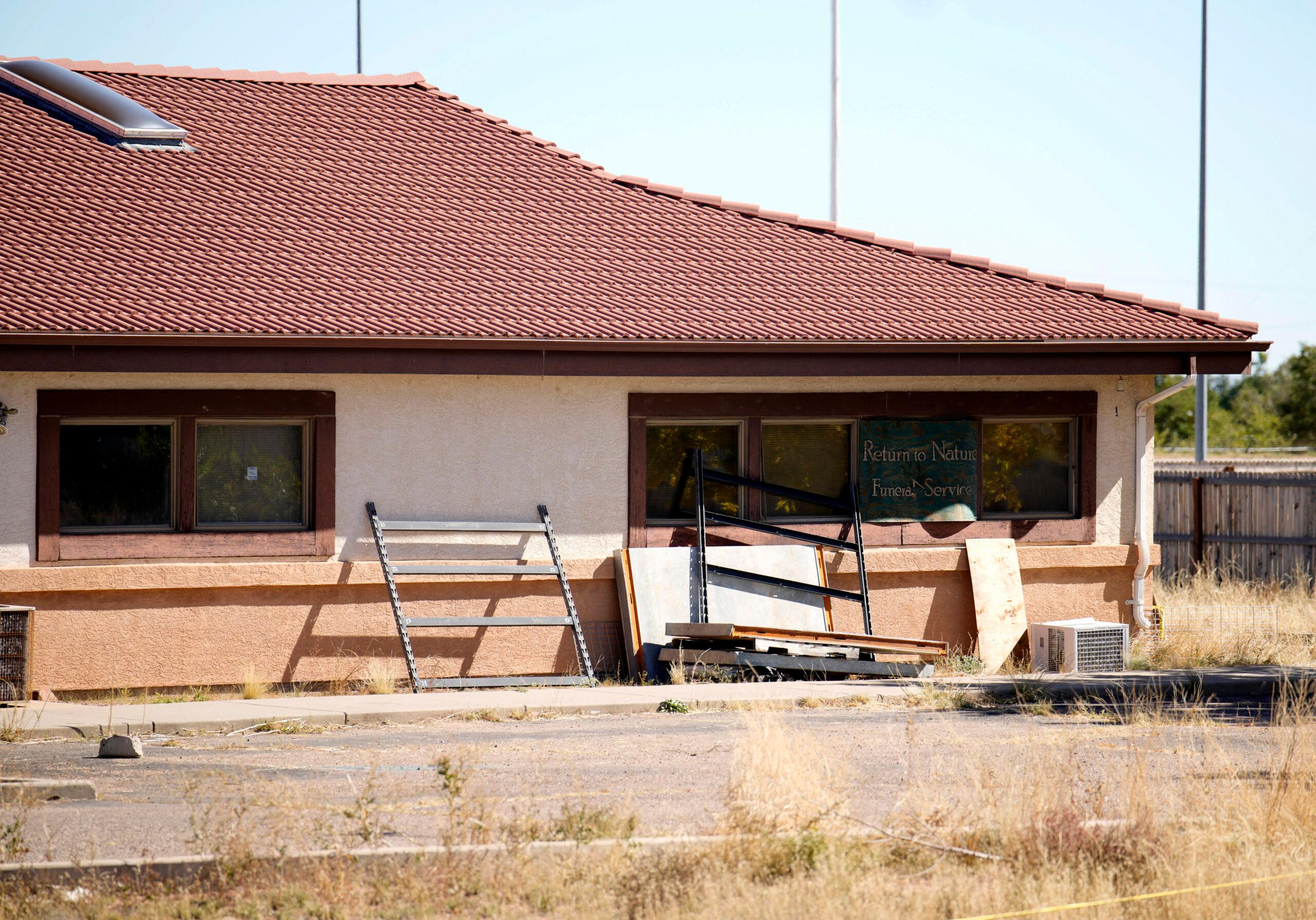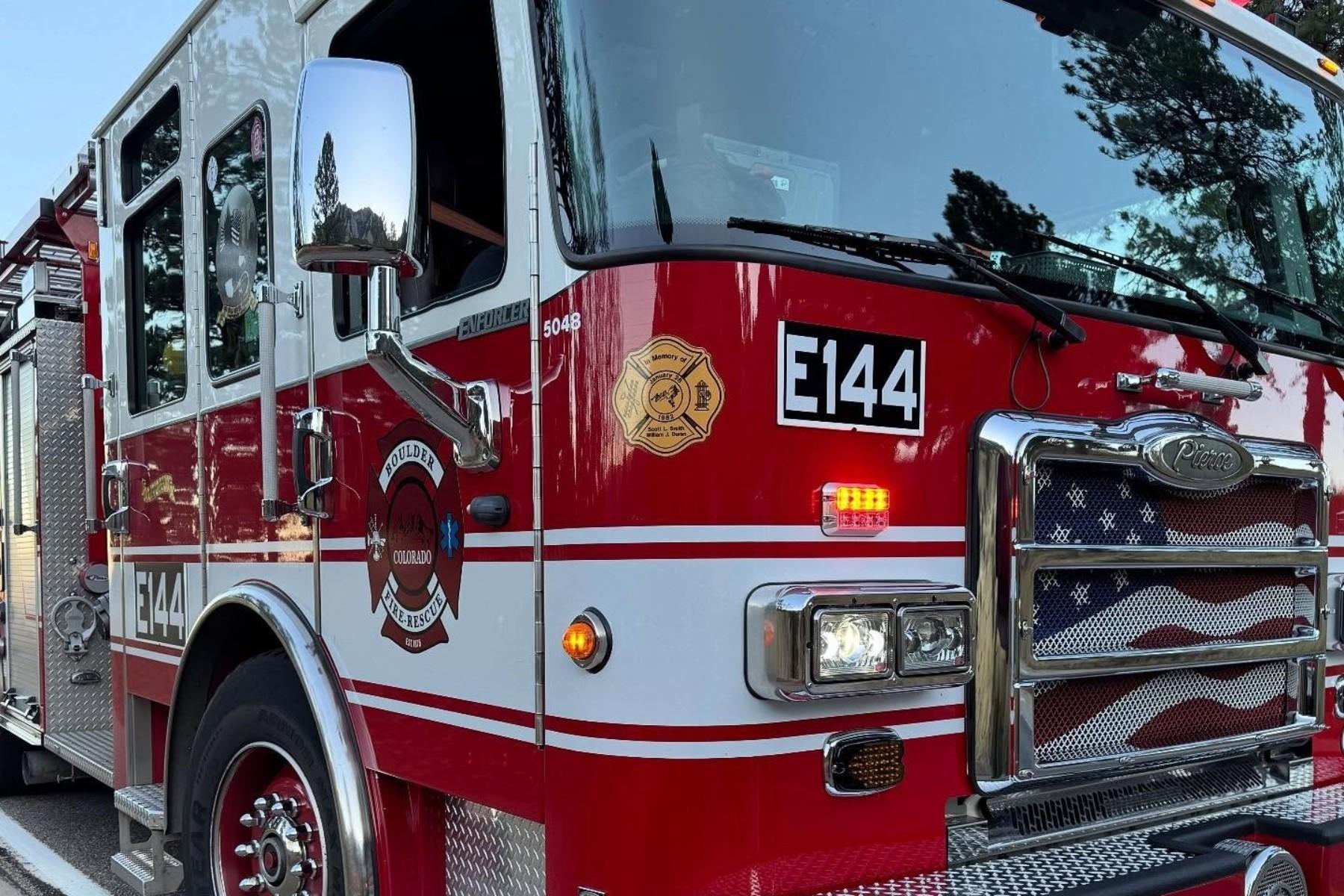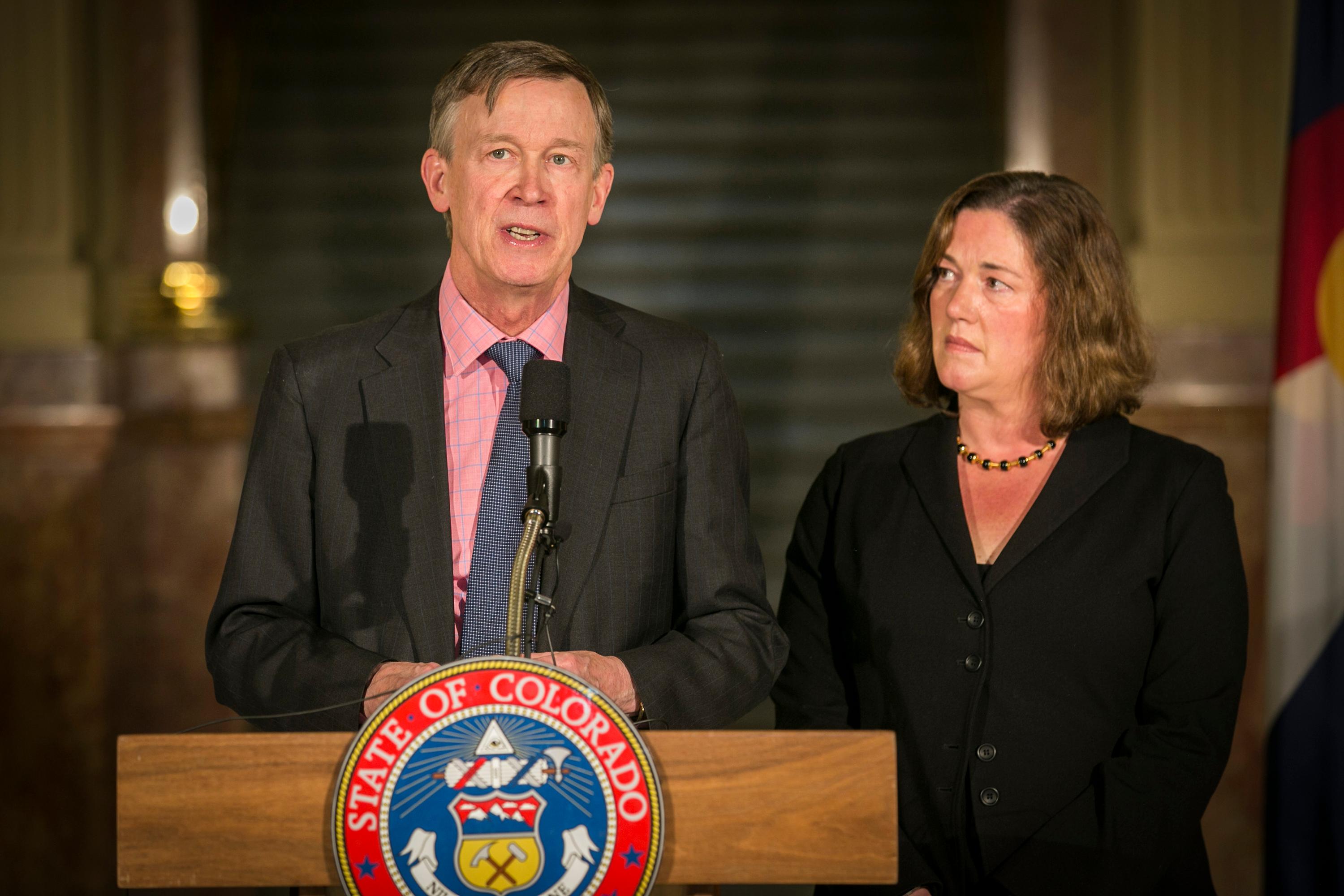
Denver teachers aren’t entitled to the pay raise they thought they’d be getting, according to an arbiter’s decision Wednesday.
The arbiter sided with Denver Public Schools in a pay dispute in which the district argued it isn’t obligated to pay teachers what they claim their contract stipulates – a 5.2 percent cost of living increase.
The union, the Denver Classroom Teacher’s Association, has been engaged in the ongoing pay dispute since April 2024.
At issue was a provision in their contract agreement that stipulated if state lawmakers decrease the amount of the “budget stabilization factor” — money lawmakers withheld every year from school districts — by an amount to cover teachers annual raises for performance and education (called “steps” and “lanes”) — the 5.2 percent cost of living increase would kick in. State lawmakers eliminated the budget stabilization factor last year, sending more money to school districts.
District officials have argued the increased funding wasn’t enough to give teachers the bigger raises. DPS instead gave teachers a 2.06 percent cost of living raise for this year - a move that the union said was originally created as a contingency plan in case of a recession. Teachers recieved a 6 percent COLA in 2022-23 and an 8 percent COLA in 2024-25.
The arbiter’s ruling siding with the district was a blow to teachers.
“The ruling on our 5.2 percent COLA was made on a technicality in contract language — not on whether DPS could afford to pay its educators, despite their many excuses,” said Rob Gould, special education teacher and DCTA president. “This fight has always been about the district’s refusal to invest in its educators and ensure they can afford to live in the communities they serve.”
The arbiter’s ruling determined that DPS did not violate the DCTA collective bargaining agreement, but did not weigh in on the district’s ability to pay its educators, said Gould. He said the money is there, pointing to higher-than-required district reserves and the fact that central office administrators got 5.2 percent cost of living increases.
The district, meanwhile, was pleased with the decision.
“Denver Public Schools has great respect and admiration for every member of the Denver Classroom Teachers Association,” it said in a statement. “We were pleased to learn that the arbitrator confirmed that we have followed the collective bargaining agreement with DCTA that was agreed to in August of 2022.”
Meanwhile, educators say they are struggling to keep up with rising costs of groceries, gas, housing and health care. East High School teacher and union representative Jill Abney said the 2.06 percent cost of living increase isn’t enough.
“Everyone was expecting the full 5.2 (percent), and so it was a letdown… if you're living on two teacher salaries or one teacher salary, if you're a single parent, you can't live off that and be close to your school and your community.”
She said she has colleagues who can’t afford to buy homes or condos in the Denver area or afford to start families with child care at about $2,000 a month.
She notes that other major school districts last year awarded higher cost of living adjustments. Jefferson County Public Schools awarded educators a 5 percent COLA and a 2 percent salary bonus, Mapleton Schools, a 5.27 percent COLA, Boulder Valley and Cherry Creek, each a 4 percent COLA.
While a district presentation last year showed teachers’ salaries have increased 47 percent since 2019 when DPS teachers went on strike, Abney argues that’s because teachers were so far behind other districts and had to make up for years of being underpaid.
“I feel like we're just falling behind again if you look at Cherry Creek schools, Boulder County. I think teachers are just looking at other districts or leaving teaching altogether or just leaving Denver to other states that are more affordable.”
The union said the arbitration ruling is not binding, and the DPS board of education can decide to reject the decision.
Six years ago this week, DPS teachers went on strike over a number of issues including pay.
This dispute, despite the arbiter’s decision, is likely to come up later this month when the district and union begin contract negotiations. The topics include issues such as competitive pay and benefits, manageable class sizes and sustainable workloads, safe and welcoming schools and other educator rights.
“Educators are now prepared to take their collective power to the bargaining table to demand what we deserve, and fight for a financial agreement and working conditions that attract and retain the best, brightest, and most qualified educators in DPS,” said Gould. “DPS educators could not be more clear in our demands: Respect us. Pay us. Value us.”









